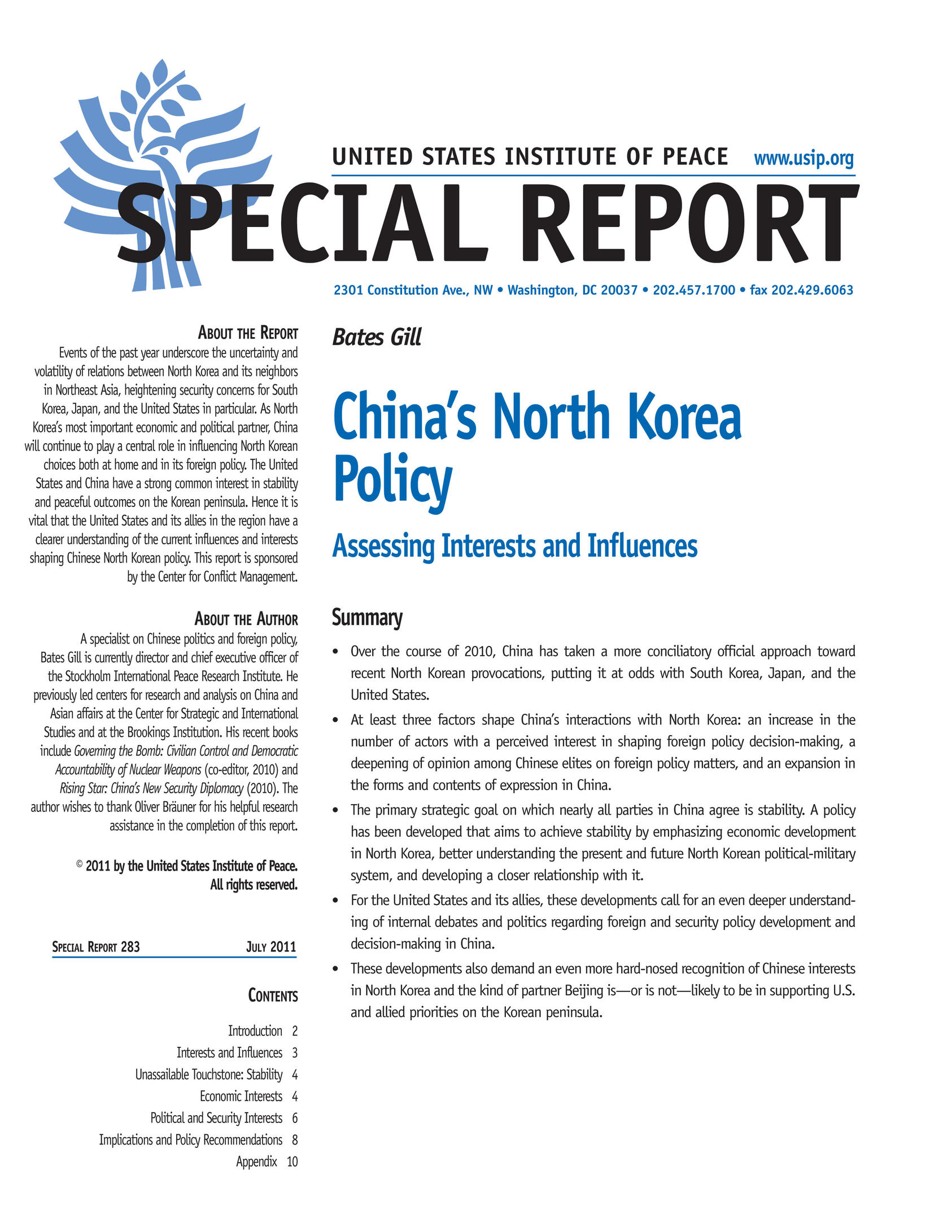China’s North Korea Policy
Key elements in China’s Communist Party, military, and business circles have steered China’s North Korea policy toward achieving stability and strengthening ties to Pyongyang, complicating U.S. efforts to enlist China’s help at reining in North Korean provocations.

Summary
- Over the course of 2010, China has taken a more conciliatory official approach toward recent North Korean provocations, putting it at odds with South Korea, Japan, and the United States.
- At least three factors shape China’s interactions with North Korea: an increase in the number of actors with a perceived interest in shaping foreign policy decision-making, a deepening of opinion among Chinese elites on foreign policy matters, and an expansion in the forms and contents of expression in China.
- The primary strategic goal on which nearly all parties in China agree is stability. A policy has been developed that aims to achieve stability by emphasizing economic development in North Korea, better understanding the present and future North Korean political-military system, and developing a closer relationship with it.
- For the United States and its allies, these developments call for an even deeper understanding of internal debates and politics regarding foreign and security policy development and decision-making in China.
- These developments also demand an even more hard-nosed recognition of Chinese interests in North Korea and the kind of partner Beijing is—or is not—likely to be in supporting U.S. and allied priorities on the Korean peninsula.
About the Report
Events of the past year underscore the uncertainty and volatility of relations between North Korea and its neighbors in Northeast Asia, heightening security concerns for South Korea, Japan, and the United States in particular. As North Korea’s most important economic and political partner, China will continue to play a central role in influencing North Korean choices both at home and in its foreign policy. The United States and China have a strong common interest in stability and peaceful outcomes on the Korean peninsula. Hence it is vital that the United States and its allies in the region have a clearer understanding of the current influences and interests shaping Chinese North Korean policy. This report is sponsored by the Center for Conflict Management.
About the Author
A specialist on Chinese politics and foreign policy, Bates Gill is currently director and chief executive officer of the Stockholm International Peace Research Institute. He previously led centers for research and analysis on China and Asian affairs at the Center for Strategic and International Studies and at the Brookings Institution. His recent books include Governing the Bomb: Civilian Control and Democratic Accountability of Nuclear Weapons (co-editor, 2010) and Rising Star: China’s New Security Diplomacy (2010). The author wishes to thank Oliver Bräuner for his helpful research assistance in the completion of this report.



